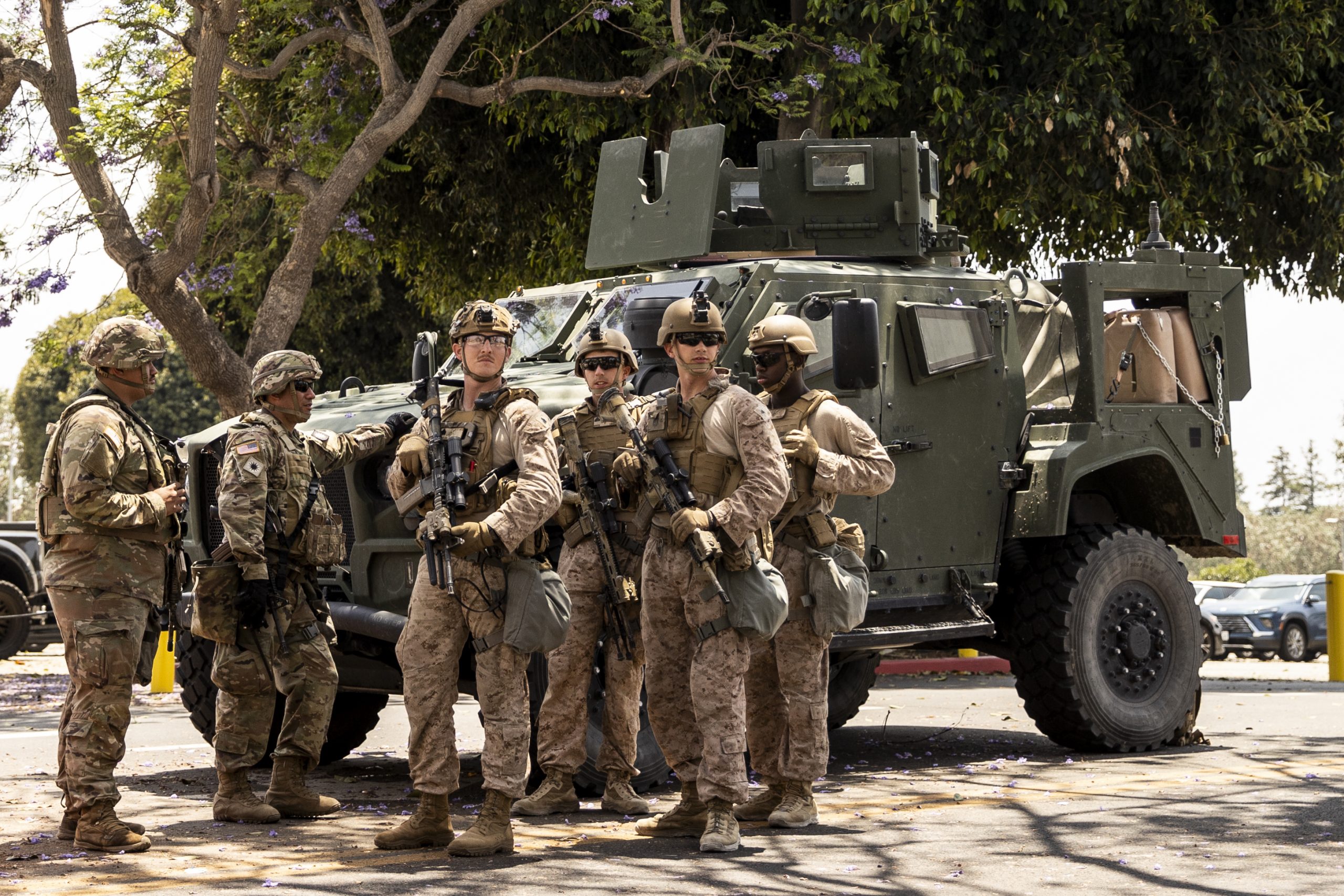A federal judge ruled that President Donald Trump broke the law when he sent thousands of National Guard members and Marines into Los Angeles earlier this summer, concluding that the troops were used as a de facto police force in violation of a longstanding prohibition on domestic military enforcement.
[time-brightcove not-tgx=”true”]
In a 52-page decision issued Tuesday, Judge Charles R. Breyer of the Federal District Court in San Francisco said the Trump Administration had “systematically used armed soldiers” to perform law enforcement functions such as crowd control, traffic blockades and detentions, despite clear limits under the 1878 Posse Comitatus Act, which bars the use of the military for civilian policing without explicit approval from Congress.
“The violations were not one-off acts by individual servicemembers but were rather the function of systematic and willful orders to troops to execute domestic law,” Judge Breyer wrote. He warned that the Administration’s approach suggested an effort to create “a national police force with the President as its chief.”
The decision does not order the immediate withdrawal of the roughly 300 federalized Guard members who remain in Southern California, but it will sharply restrict their role to protecting federal property. Judge Breyer’s injunction, set to take effect Sept. 12, bars the Pentagon from directing National Guard soldiers or Marines in the Los Angeles area to make arrests, conduct searches, or perform crowd or riot control unless Congress authorizes such activities.
The ruling marks a victory for Democratic California Gov. Gavin Newsom, who sued to block the deployment and has accused Trump of militarizing city streets for political gain. “DONALD TRUMP LOSES AGAIN,” Newsom wrote in a post on X, echoing the President’s social media style. “The courts agree — his militarization of our streets and use of the military against US citizens is ILLEGAL.”
Trump ordered the deployment in early June after protests broke out in Los Angeles over immigration raids. He declared the demonstrations a form of “rebellion” in an executive order and directed nearly 4,000 National Guard members and 700 Marines into the nation’s second-largest city, despite objections from Newsom and local leaders. City officials argued that the protests were largely peaceful and manageable, and that the presence of armed troops escalated tensions unnecessarily.
Maj. Gen. Scott Sherman, who led the task force overseeing the deployment, testified that the troops had been trained on the limits of the Posse Comitatus Act, including prohibitions on patrols and riot control. But he said Pentagon officials instructed him that exceptions existed when federal property or personnel were involved. Judge Breyer rejected that reasoning outright, calling the Administration’s legal theory “incorrect” and its justifications “contrived.”
The Justice Department, which defended the deployment, has signaled it will appeal the ruling. Lawyers for the Administration argued that the troops served only a “protective function” and were necessary to shield federal agents from demonstrators interfering with their duties. They also contended that presidents have broad inherent authority to dispatch military forces in defense of federal operations.
Read more: Trump Has Deployed Troops At Home Like No Other President. Here is Where He Has Sent Them
Judge Breyer’s decision is the latest rebuke of Trump’s expansive view of presidential power, which he has invoked to impose tariffs, roll back regulations, and deploy federal forces in American cities. Since the deployment to Los Angeles, Trump has used his authority over the District of Columbia to send National Guard troops into Washington, and has mused publicly about doing the same in Chicago and other Democratic-led cities.
“There was no rebellion, nor was civilian law enforcement unable to respond to the protests,” Judge Breyer wrote. “This was intentional. Defendants instigated a months-long deployment of the National Guard and Marines to Los Angeles for the purpose of establishing a military presence there and enforcing federal law.”

